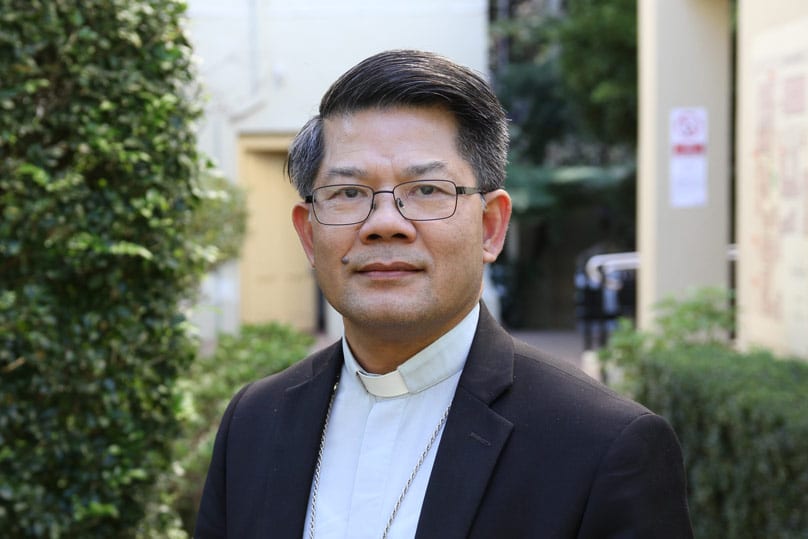
“Cruel, “un-Australian” and “a bridge too far” is how Parramatta Bishop Vincent Long OFM Conv has described the recent Australian Government decision to crack down on asylum seekers who had been transported to Australia for medical treatment.
The Government announced on 26 August that it would change the visa status of some Australian-based asylum seekers on temporary visas to that of “final departure Bridging E Visa”.
The change took effect on 28 August and resulted in the loss of a $200 fortnightly payment, with those affected told that they had three weeks to move out of government-supported accommodation.
A spokesperson for the Immigration Minister, Peter Dutton, told the ABC that the decision would affect around 100 people, but Human Rights advocates say the number could be nearer 400 – the approximate number of asylum seekers in Australia on medical or compassionate grounds.
Bishop Long, the Australian Bishops delegate for migrants and refugees and a former Vietnamese refugee, told media that some of those people had a history of mental illness, “largely due to prolonged detention (under) the Australian Government policy”.
“These men, women, and children were brought to Australia from offshore detention centres, to remove support for them leaves them vulnerable to exploitation, and risks leaving them destitute,” Bishop Long said in a 31 August statement.
“As refugees, these men, women, and children, are under the care of the Australian Government. To deny them appropriate support is to leave them at a risk of further harm …
“I urge the Australian Government to continue to provide support services for these men, women, and children, who are awaiting a resolution to their current situation. As a well-resourced nation with a long tradition of caring for migrants and refugees, we can do better than to throw a small number of refugees out onto the streets. It is a bridge too far. It is cruel and simply un-Australian.”
Mr Dutton’s spokesperson told the ABC that the change was due to the recalcitrance of asylum seekers who refused to leave after their legitimate reason for being on the mainland had expired.
“They were brought here temporarily, but refuse to return and take out court injunctions to prevent their removal,” he said.
“Those whose treatment has been completed will be told the Government, the taxpayer, will no longer provide financial assistance.”
Labor immigration spokeswoman Shayne Neumann criticised the government for making people destitute and “exacerbating the health conditions which asylum seekers were originally transferred to Australia to be treated for”.
The change will mean that those asylum seekers, while devoid of Government support, will now be legally able to work.
Asylum seeker advocate Natasha Blucher told SBS that while the affected people were “very employable,” their past trauma and the short notice they were given made the prospect of them getting on their feet “absurd” and “impossible”, and would likely result in children going homeless.
